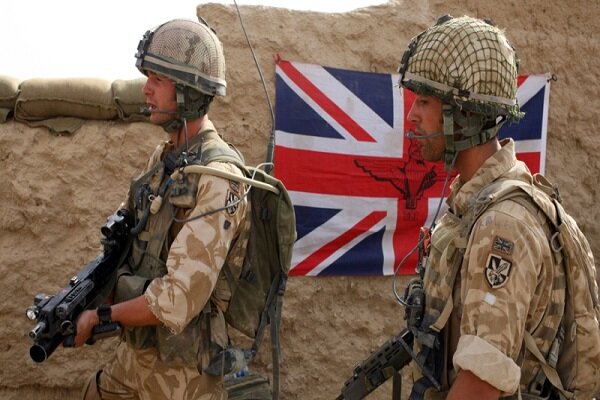Dr. Gholamreza Khaji, in an interview with the website of the Strategic Council on Foreign Relations, referred to a report published by the Action Against Armed Violence Charity that 289 people were killed during the British military operation in Afghanistan from 2006 to 2014, 86 of whom children, and noted: When Britain and the United States entered Afghanistan, as they did in Iraq, they became known as the occupying powers, which had obligations under international law.
Saying that occupation of a country should be temporary and the occupier is obliged to announce its termination, he added: The occupying government is responsible for creating security in that country and has a duty to ensure security of the occupied country. Britain’s performance, given that it entered Afghanistan during military operations, is subject to the law of war, and the four Geneva Conventions as well as the 1977 Conventions which have set the framework for such laws.
International responsibility of British government
The international law analyst explained: The four Geneva Conventions of 1949 emphasize that civilians are immune from aggression and that anyone who violates those laws is considered guilty. In this regard, those who have issued the orders, are considered guilty and war criminals, and the British government has an international responsibility in this context.
Khaji added: In international law, only the US and British governments can be tried in the Human Rights Council, but those responsible at that time, including the British prime minister, the secretary of defense and the then British security officials, must be brought to justice and be tried in the International Criminal Court with a lawsuit; even the prosecutor of the court can issue an indictment for them personally.
The university professor said: If this report is referred to the court and the court’s investigation shows that it is correct, this international organization should be activated to prosecute those crimes committed by Britain.
Emphasizing the responsibility of the UN Human Rights Council in prosecuting British crimes related to the massacre of civilians in Afghanistan, he added: An international rapporteur should be appointed in this regard and a case opened to prosecute those crimes.
Regarding the possibility of pursuing compensation from the British government for the killing of civilians, Khaji, referring to the political crisis in Afghanistan, said lack of a legitimate and internationally recognized government is an obstacle to pursuing the rights of its citizens and added: Although the British government’s obstruction and political measures to pursue those issues should be considered, such complaints have not already been resolved through pressure and sanctions from European countries; however, Afghan nationals, relatives and friends of the victims can file a lawsuit in the Criminal Court, seeking compensation and damages.
Need for governments, media to pursue “British government responsibility”
Emphasizing the need for countries to pay attention to the responsibility of the British government for the massacre of civilians in Afghanistan and its discussion in international meetings and forums, the university professor said: Within the framework of regional treaties and international meetings and also with extensive and frequent processing by the media, the need for holding Britain accountable for its attempts and for compensating the damage should be emphasized.
Saying that groups should be formed in order to carefully identify those involved in the massacre of civilians in Afghanistan, he added: In that case, there will be deterrence and fear in Britain, which will prevent repetition of those irresponsible actions. One should not be indifferent towards those who have killed hundreds of civilians in Afghanistan claiming human rights and democracy.
Western countries misuse of international organizations’ hosting
Khaji also stressed: Preparation, ratification and implementation of the convention is one of the interests of Western countries; because with such designs, they host it, set the rules, and protect their performance from any follow-up. In the work of the Criminal Court, we are witnessing control of those countries in order to secure their interests and destroy the rights of other countries. Even in what is referred to as the “Counter-Terrorism Convention”, we see implementation of this procedure and justification of their actions among its laws.
The international law analyst added: It is necessary for countries outside this bloc to play an active role in this regard and take the initiative through collective measures in the form of regional treaties.










0 Comments